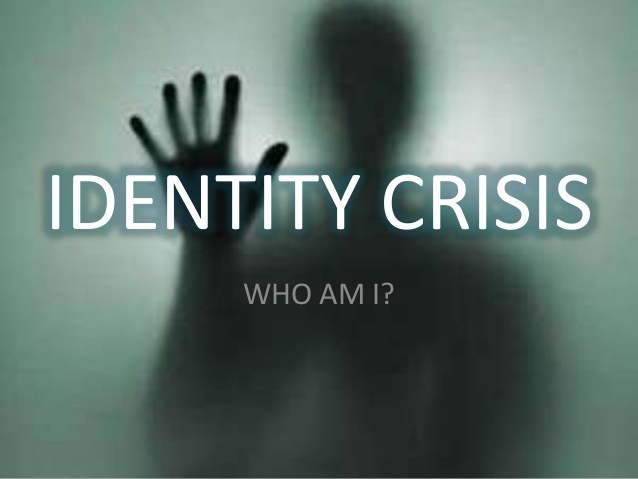
IDENTITY CRISIS
My son, Parag is 16 years old. Since the last six months, he appears to be extremely troubled. He is very irritable, withdrawn and confused. His demands have increased tremendously but as soon as any of his demands is fulfilled, he is disillusioned by it. He appears to be uncertain about everything he does right from the choice of his clothes to his studies. Please tell me what to do.
It appears that Parag may be going through an identity crisis. There is a failure to negotiate the normative moratorium provided by the society between childhood and adulthood. There is rejection of the mainstream cultural values, ideals and institutions and a drift into aimless alternative lifestyles. There is a severe subjective distress regarding uncertainty about a variety of issues relating to identity, which result in impairment in functioning. This may involve issues relating to identity such as long-term goals, career choice, friendship patterns, sexual orientation and behavior, normal values and group loyalties. However, sometimes this may also appear as a legacy of family disruption and the struggles that mark adolescence. In our culture and tradition, there is a binding together by a set of stable, consensually validated, all-encompassing beliefs, values, ideals and norms. We are presumed to be socialized in a context where authority and hierarchy are clear and where roles are few and unambiguously prescribed for each person leaving relatively little room for personal choice. But in today’s world, the society does offers no clear or widely shared set of beliefs and values but rather a bewildering and ever-changing array of choices in ideals, occupations, life-styles and relationships constantly displayed and at times glamorized by the mass media. There is a tendency to place great emphasis on individual achievement and mobility. In this context, defining and establishing a separate adult identity may be a more complicated process. Nowadays there is lack of gradual transition to independent living, less tolerance for dependency, and the choices of adult roles less open-ended and less bound to tradition, community and extended family. Here Parag has to consolidate a sense of identity out of the kaleidoscope generated by dramatic hormonal and physical changes, heightened sexuality, profound mood swings, an internal need to separate form the parents, find emotional intimacy and carve an independent niche in the world. He has to get a temporal continuity that links his past, present and projected self in the anticipated future. There has to be a cohesive integration of the adolescent’s diverse roles, values and ideals into a well-fitting puzzle without insurmountable conflict or incongruity. He has to disengage from his parents and establish autonomy and self-regulation.
Parag may feel bewildered and unable to experience a coherent sense of who he is or construct a realistic map to guide his transition into adulthood. He could find himself increasingly prone to feelings of shame, acute self-consciousness and shyness and painful questions about self-esteem and self-worth. He may question religious identifications and moral value systems. He frequently avoids choices, which leads to a sense of emptiness or jumps precipitously into a negative identity, largely a scornful and hostile rejection of the role and values offered as appropriate by his family and community. He envies his friends for their passion and search for love and intimacy, but closeness only brings anxiety and leads him to either painful isolation and emotional distancing or to striving to merge with a group or an idealized figure. There is a disturbance in the experience of time consisting of a sense of urgency and the disbelief that time may brings changes. This is coupled, in a contradictory fashion with the violent fear that overwhelming changes are inevitably in store. This distorted sense of time may blind him to the fact that he is the agent of his own life and behavior. He feels that life happens to him rather than being a result of his planning and initiative. Parag is also occasionally tempted to have an impulsive experimentation with alcohol.
What can you do?
The first step is the establishment of a very empathic, emphatic supportive stance and active engagement of Parag in the clarification of his experiences. This fosters the emergence of an alliance in which Parag develops the sense that help and direction can be derived from a corroborative relationship with you. Only when this sense of collaboration has emerged, you can productively confront his maladaptive coping and defensive mechanism. The message of fostering this alliance is that you will be able to work jointly in finding the appropriate role that will facilitate Parag’s growth. You might have to address concurrently any disruptive family interaction that interferes with his efforts at self-definition. Initially his behavior could be marked by ruthless tyranny, suspiciousness, demands for control of the relationship or attempts to reduce your role to that of captive audience of an elaborate show. You must persist with clarifying his experiences and discourage withdrawn behavior. Parag may have a tendency to get lost in a fantasy in order to avoid facing reality, so one of the tasks that you have is to help him distinguish between reality and fantasy. One of the tasks is help him learn how to save face. He should have a sense of control when confronted with roles imposed by societal authority figures like family members, teachers and fantasized ideals. He has to find a more adaptive solution to keep that anxiety in control. You can also point out the many advantages of not changing in face of the demand and how the price that he would pay for that behavior. Implicitly or explicitly, you are presenting to him a bargain: relinquish old coping methods of withdrawal with the illusion of control and safety against the more exposed and laborious process of attempting to achieve real mastery and meaningful relationships in the new role. You can guide him to closely align his play and fantasy to reality’s constraints. He can try out new roles, practice imagined solutions to life’s dilemmas and explore different behaviors that promise autonomy and emotional connectivity.



